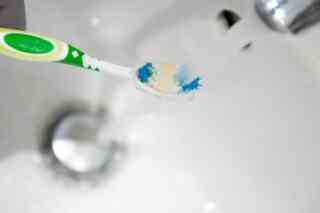Toothbrush Maintenance
How to Properly Care for Your Toothbrush
Brushing your teeth twice a day is an important part of a good oral hygiene routine, which is why maintaining your toothbrush is also very important. While we may believe our toothbrush needs little to no attention to keep it working properly, this is far from the truth. Toothbrush maintenance is not only important for keeping your toothbrush in working order, but is also an important step in ensuring good overall oral hygiene. Here are some recommendations to consider:
- Toothbrushes or electric toothbrush heads should be replaced every three to four months or when the brush’s bristles begin to fray or become discolored. For those who are rougher on their teeth when brushing (something to consider stopping), it is recommended they replace their toothbrush or electric toothbrush head sooner or when they notice the bristles becoming frayed.
- Toothbrushes should never be shared with other individuals, even if they are family members. Sharing a toothbrush could result in exchanging microorganisms or bodily fluids between users, which puts both parties at a higher risk for developing infections. This is a particular concern for those with compromised immune systems, such as young children and the elderly.
- Toothbrushes should be thoroughly rinsed after each use to help remove any debris or remaining toothpaste from the brush’s bristles. Toothbrushes should also be stored in an upright position whenever possible to allow the bristles to air dry until the brush is used again. If more than one toothbrush is stored in the same holder or same area, make sure to keep the brushes separate in order to prevent cross-contamination.
- Toothbrushes should not be stored in closed containers unless for travel. Closed containers create a moist environment that makes it easier for microorganisms and bacteria to grow as opposed to storing the toothbrush in an open-air environment.
Following these simple cleaning, storing, and maintenance tips can help you have a sanitary, clean toothbrush all the time. Some individuals believe that using a commercially available toothbrush sanitizer or soaking their toothbrush in antibacterial mouth wash helps to further remove microorganisms – while there is no evidence that doing this is either beneficial or harmful to oral health, it may be something to consider should your toothbrush get especially dirty or come in contact with a contaminant. Then again, it may just be better to replace the toothbrush or brush head all together.
If you or a loved one is in need of a visit to the dentist, you can sign up for our New Hampshire Family Discount Dental Plan and save as much as 20 percent on your dental bills. For more information, please click here.
Copyright: tommoh29 / 123RF Stock Photo











